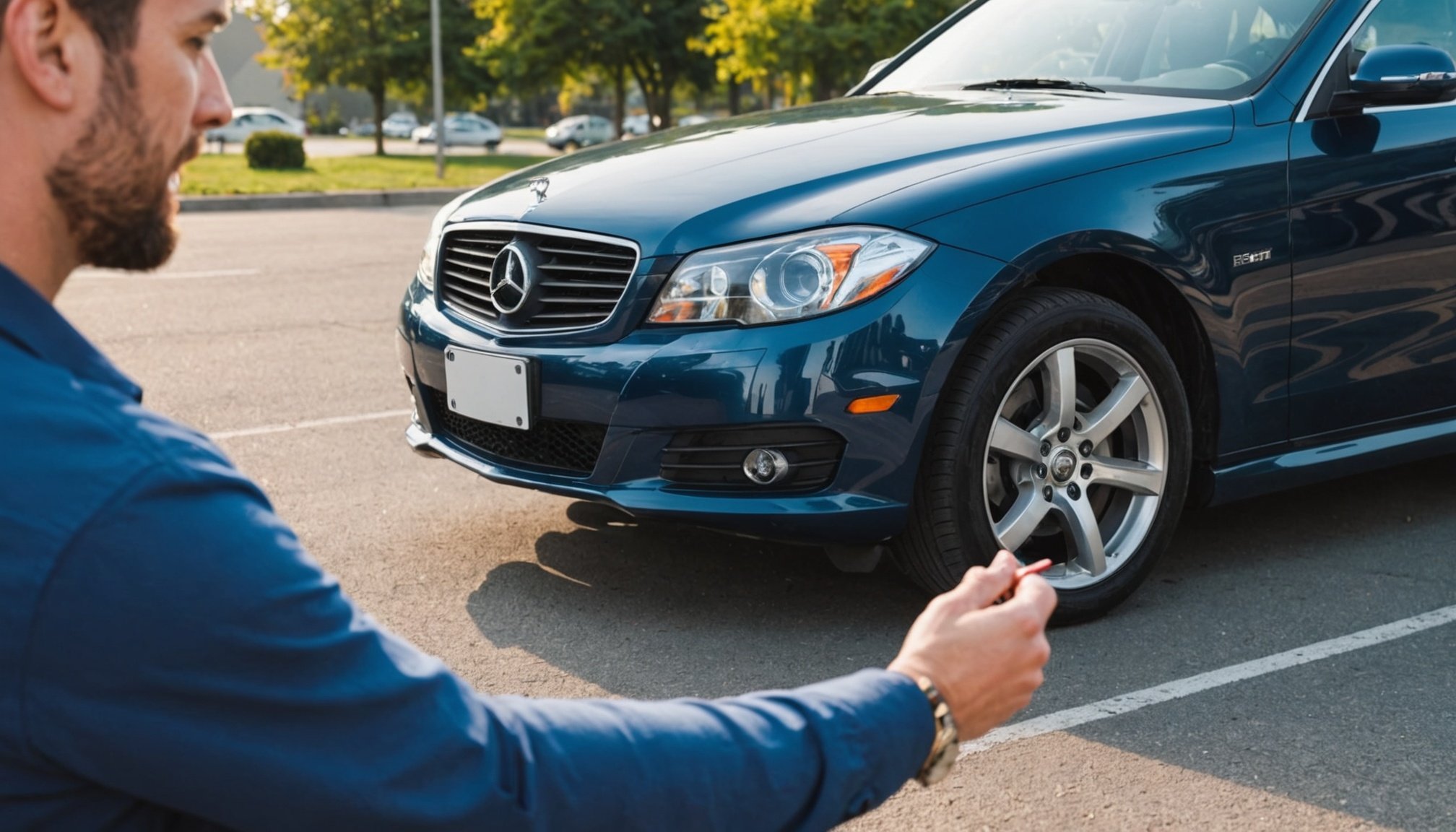In the world of motorized vehicles, getting the best possible price for your car can seem like an uphill battle. That often-used car sitting in your driveway may have more value than you realize. However, you may need to put in some elbow grease to bring out its best potential.
There are several factors that buyers tend to look at when buying a used car. Its service history, current condition, market demand and even the time of year can all play a part in deciding the price. The key is to understand these factors and use them to your advantage in order to maximize the resale value of your vehicle.
Also read : What are the best SUVs for off-road driving available in the UK?
Optimizing the Car’s Appearance
First impressions are the stepping stone to a successful sale. Just as you would dress up for a job interview, your car needs to look its best when meeting potential buyers.
Start with a good deep clean of your car, both inside and out. A professional detailing service can help in this regard, though it is also something you can do yourself with the right products and a bit of time. Aim for that new car smell and feel – it will help to plant the idea in the buyer’s mind that your car is well-maintained and worth the asking price.
Also to see : What are the environmental impacts of hybrid vehicles in the UK?
Don’t forget about the little details. Small dings and scratches might not affect your car’s performance, but they can give the impression that the car hasn’t been cared for. If you can, invest in minor repairs to fix these cosmetic issues. Remember, the goal is to have your car looking as pristine as possible to allure potential buyers and justify the price tag.
Highlight the Service History and Maintenance
Buyers want to know that the car they’re buying has been taken care of. A well-documented service history and regular maintenance are indicators of a reliable vehicle, which will increase your car’s resale value.
Make sure to keep all service and maintenance records, including MOT certificates, and present them neatly to potential buyers. These documents will help to build buyer confidence and demonstrate that you have been a responsible car owner.
If your car is due for a service or MOT, it may be beneficial to get these done before selling. This way, prospective buyers can see that the car is fully serviced and roadworthy, reducing potential apprehensions about its condition and reliability.
Understand the Market
Knowing the market is paramount in maximizing your car’s resale value. Do your research to find out how much similar cars are selling for, taking into account factors like age, mileage, condition, and any optional extras that your car may have.
Websites like Auto Trader and Gumtree are excellent resources to help you find comparable vehicles and understand the current market price.
It’s also critical to consider the timing of your sale. For instance, convertibles tend to fetch higher prices in the summer months, while 4x4s can command a premium in the winter.
Use a Professional Service
If you’re finding the process of preparing and selling your car daunting, a professional car buying service could be the way to go. These services can take care of everything from assessing your car’s value, marketing it to potential buyers, and even handling the paperwork.
While they do charge a fee, using a professional service can save you time and hassle, and may even help you get a better price for your car. Just make sure to do your research and find a reputable service to ensure you get the best deal.
Negotiate Like a Pro
Finally, your negotiation skills can play a crucial role in getting the best price for your car. It’s important to set a realistic asking price – high enough to give room for negotiation, but not so high that it deters potential buyers.
Be prepared to justify your price to buyers. Use the service history, market research, and any recent maintenance work as evidence to back up your asking price.
Remember, negotiation is a two-way street. While you’re looking to get the best price, the buyer is also looking for a good deal. Be open to offers, but also know your bottom line – the lowest price you’re willing to accept.
Selling your car can be a significant financial decision. With careful preparation and a sound understanding of the market, you can ensure that you get the best possible price for your vehicle. Be patient, be thorough, and with a bit of luck, you’ll find the right buyer who is willing to pay a fair price for your well-maintained car. Remember, the goal is not just to sell, but to sell well.
Preparing the Necessary Paperwork
Documentation is an important aspect of the car resale process. Potential buyers will want to see the paperwork that demonstrates your vehicle’s history and condition, and the more thorough you are, the more confidence it will inspire.
Begin by gathering all the necessary documents related to your car. This includes service records, MOT certificates, the logbook (V5C) which proves your ownership, any receipts for parts or work done on the car, and historical tax and insurance details if available. These documents attest to the car’s service history and present a transparent picture of its maintenance over the years.
If your car is financed, you’ll need to settle this before selling. Most buyers are wary of buying a car with outstanding finance because legally, the car still belongs to the finance company and not you. Clearing any outstanding finance on your car before selling can significantly add value to the sale. You can check the status of your car’s finance with the help of a car data checking service.
Ensure that you also have a recent car valuation to hand. This will not only provide a benchmark for setting the asking price but also act as a negotiation tool with potential buyers. There are several online tools available that can help you value your car based on its make, model, age, mileage and condition.
Closing the Sale
Once you’ve got your car looking great, documented its service history, understood the market price and prepared all the necessary paperwork, you’re ready to sell your car. The process can be daunting, but with preparation and patience, you can make it a smooth experience.
Begin with advertising your car effectively. Include high-quality photos from multiple angles and a detailed description highlighting your car’s key features and selling points. Be sure to mention any recent services, new parts or breakdown cover.
Be honest about any flaws the car might have. Honesty will build trust with potential buyers and avoid any disputes later on.
When potential buyers contact you, be prepared to answer their queries honestly and thoroughly. Arrange viewings or test drives in a safe and convenient location. If a buyer is seriously interested, they may want to get the car inspected by a mechanic. This is a common practice and can be seen as a positive sign of a serious and responsible buyer.
Negotiating the price can be a tricky part of the sale process. Remember to stay firm on your price, but also be open to reasonable offers. Use your car valuation, service history, and recent maintenance work as evidence to justify your asking price.
Once you’ve agreed on the price, you can move to closing the sale. Ensure all the necessary paperwork is in order, including the V5C/Logbook. Remember to provide the buyer with a receipt of sale for both parties to sign.
Conclusion
Preparing your car for resale may seem like a daunting task, but with the right steps, you can enhance its appeal and maximize its value. By investing time in sprucing up your car’s appearance, highlighting its service history, understanding the current market trends, preparing the necessary paperwork and employing efficient negotiation skills, you can ensure that you’ll get the best possible price for your vehicle.
While the process may require some time and effort, the reward will be a smooth sale and a fair price for your car. Remember, every effort you put into preparing your car for sale will pay off in increased car trade value. So, before you put up that ‘For Sale’ sign, take the time to follow these steps to maximise the resale value. It’s not just about selling your car; it’s about getting the best return on your investment.











